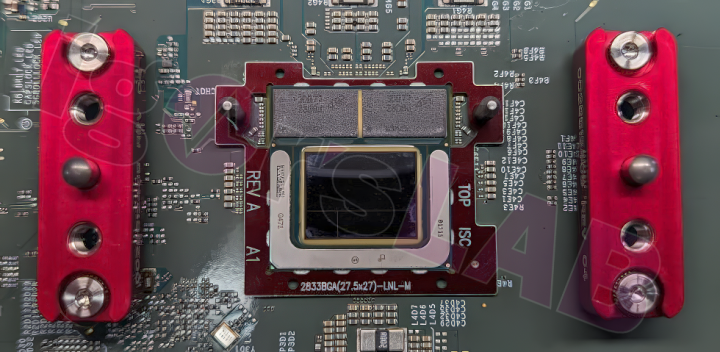
It seems like Apple might need to watch out, because Intel and Microsoft are coming for it after the latter two companies reportedly forged a close partnership during the development of Intel Lunar Lake chips. Lunar Lake refers to Intel’s upcoming generation of mobile processors that are aimed specifically at the thin and light segment. While the specs are said to be fairly modest, some signs hint that Lunar Lake may have enough of an advantage to pose a threat to some of the best processors.
Today’s round of Intel Lunar Lake leaks comes from Igor’s Lab. The system-on-a-chip (SoC), pictured above, is Intel’s low-power solution made for thin laptops that’s said to be coming out later this year. Curiously, the chips weren’t manufactured on Intel’s own process, but on TSMC’s N3B node. This is an interesting development because Intel typically sticks to its own fabs, and it even plans to sell its manufacturing services to rivals like AMD. This time, however, Intel opted for the N3B node for its compute tile.
The chip also sports Intel’s next-gen Arc Battlemage integrated graphics, which are said to come with a maximum of 64 Xe2 execution units (EUs) and eight Xe2 cores. Rumor has it that Lunar Lake will also offer up to 32GB of LPDDR5X-8533 memory which will be directly integrated into the SoC. This saves a lot of space — according to Tom’s Hardware, anywhere between 100 and 250 square millimeters. It also has a six-tile neural processing unit (NPU).
At maximum, the SoC is rumored to sport a CPU with a total of eight cores — four performance and four efficiency. Those are rookie numbers compared to chips like the high-end Core i9-13900K, but Lunar Lake stands in a league of its own, where it will only need to compete against the likes of Apple’s M3.

To that end, it appears that Intel is coming to the battlefield armed to the teeth. Igor’s Lab teased that Intel has been working closely with Microsoft, and that the development of Lunar Lake CPUs was more of a team effort than one might expect. The goal was to make Lunar Lake CPUs work particularly well with Windows 11.
The details of what Intel and Microsoft cooked up together are still unclear, but it’s definitely a step in the right direction. Apple’s own silicon, as well as its own ecosystem, is part of what pushes some consumers toward getting a MacBook instead of a Windows-based laptop. If Intel and Microsoft managed to work out a solution that could push Lunar Lake to the next level when used with Windows, it might become a force to be reckoned with later this year.



